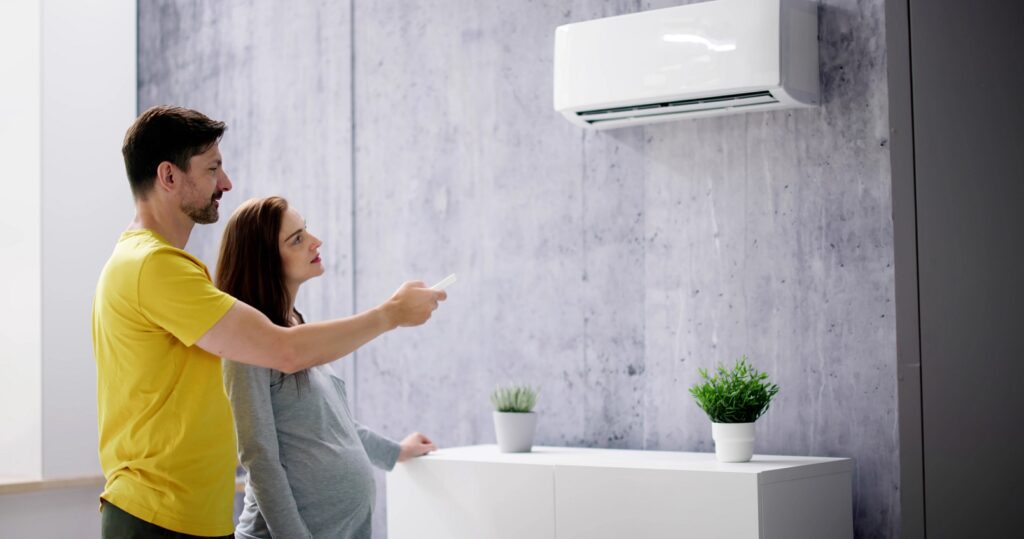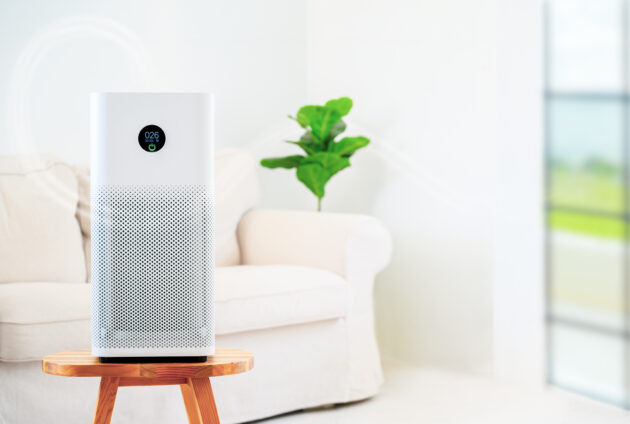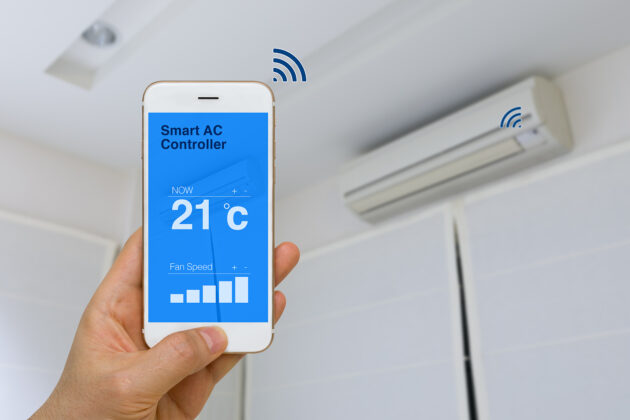Choosing the Right Air Conditioning System for Your Home
Staying cool during the hot months is more than just a comfort—it’s a necessity. But how do you choose the right air conditioning system for your home? With a variety of options available, it can feel overwhelming to figure out what will work best for your space, needs, and budget.
In this guide, we’ll walk you through different types of air conditioning systems, considerations for making the right choice, and some practical tips for maintaining your system to ensure it runs efficiently. Whether you live in a cozy one-bedroom apartment or a sprawling multi-level home, we’re here to help you make an informed decision that keeps you cool without breaking the bank.

Understanding Your Home’s Cooling Needs
Before jumping into the types of AC systems, it’s important to understand what your home needs. Air conditioning isn’t a one-size-fits-all solution, and factors like home size, layout, insulation, and even your local climate will play a huge role in determining the best system for you.
- Home size: A larger home with multiple rooms will likely require a central air system, while a smaller space might only need a window unit or a mini-split system.
- Climate: If you live in a humid environment like Noblesville, Indiana, your AC system’s ability to manage humidity will be just as important as its cooling power.
- Insulation: The better insulated your home is, the more efficient your air conditioning system will be. Poor insulation can force your AC to work harder, driving up energy costs.
Types of Air Conditioning Systems
There are several types of air conditioning systems, each designed to meet different cooling needs. Let’s break them down so you can find the one that works best for your home.
1. Central Air Conditioning
Central air conditioning is one of the most common options for larger homes. This system works by circulating cooled air through a network of ducts that spread across your home, delivering even, whole-house comfort. It’s perfect if you’re looking for a system that keeps every room cool and comfortable.
However, it’s worth noting that central air conditioning systems can be more expensive to install, especially if your home doesn’t already have ducts. The initial investment can be high, but it pays off in the long term with the comfort and efficiency it offers.
- Best for: Larger homes with existing ductwork.
- Pros: Whole-house cooling, energy-efficient when well-maintained.
- Cons: Higher installation cost, ductwork can require maintenance.
2. Ductless Mini-Split Systems
Ductless mini-split systems are becoming increasingly popular, especially in homes without existing ductwork. These systems consist of an outdoor compressor and indoor air handlers that cool individual rooms. One of the biggest advantages of ductless systems is that they allow for zoned cooling, meaning you can cool specific rooms or areas of your home without wasting energy on spaces you aren’t using.
Mini-splits are also highly energy-efficient, often outperforming traditional central air systems in terms of energy consumption. Plus, they don’t require ductwork, which can be a significant cost-saver if your home isn’t already outfitted with ducts.
- Best for: Homes without ductwork or homeowners who want zoned cooling.
- Pros: Zoned cooling, energy-efficient, easy installation.
- Cons: Can be expensive for multiple units, and requires regular cleaning of filters.
3. Window Air Conditioners
Window air conditioners are a compact, budget-friendly option that’s best suited for cooling individual rooms. These units are mounted in a window or wall opening and work by pulling in warm air from the room, cooling it, and then releasing it back into the space.
While these units are convenient and affordable, they are typically not the most energy-efficient option and can be a bit noisy. They also tend to block natural light from the window they’re installed in, which can be a downside for some homeowners.
- Best for: Smaller spaces or individual rooms.
- Pros: Affordable, easy installation, no permanent alterations to the home.
- Cons: Noisy, less energy-efficient, blocks windows.
4. Portable Air Conditioners
Portable air conditioners are similar to window units but offer more flexibility. These units sit on the floor and vent hot air outside through a window or door. The biggest advantage is their portability—you can move them from room to room as needed.
While portable air conditioners are convenient, they tend to be less efficient than window units or mini-split systems. They also require regular maintenance, like draining condensation, to keep them running efficiently.
- Best for: Renters or those needing temporary or supplemental cooling.
- Pros: Portable, no permanent installation required.
- Cons: Less energy-efficient, requires venting and regular maintenance.
Energy Efficiency and Environmental Impact
Choosing the right air conditioning system isn’t just about comfort—it’s also about energy efficiency and minimizing your environmental footprint. One of the best ways to gauge the efficiency of an AC system is by looking at its Seasonal Energy Efficiency Ratio (SEER) rating. The higher the SEER rating, the more energy-efficient the system is, and the lower your energy bills will be over time.
In addition to SEER ratings, consider looking for systems that use eco-friendly refrigerants, such as R-410A, which have less environmental impact than older, ozone-depleting refrigerants like R-22. Many newer AC systems are also equipped with features like programmable thermostats or smart home compatibility, which can further optimize your system’s efficiency.
Installation Matters
Once you’ve chosen the right system, you’ll want to make sure it’s installed correctly. Proper installation is crucial for ensuring the system runs efficiently and lasts as long as possible. Working with experienced professionals, like the team at Thornton Plumbing, can make all the difference. We make sure your system is set up to function at its best from day one, so you get the most value for your investment.
Maintenance Tips for Longevity
No matter which air conditioning system you choose, regular maintenance is essential for keeping it running smoothly. Here are a few tips:
- Clean or replace filters regularly: Dirty filters reduce airflow, making your system work harder and less efficiently.
- Check the thermostat: Ensure your thermostat is set to the correct temperature and functioning properly.
- Inspect and clean outdoor units: Over time, debris can accumulate around your outdoor unit, reducing its efficiency. Keep the area around it clear to ensure proper airflow.
- Schedule professional tune-ups: Regular service checks can catch small issues before they turn into costly repairs. It’s a good idea to have your system professionally serviced at least once a year.
Making the Right Decision
Ultimately, choosing the right air conditioning system comes down to understanding your home’s needs, energy efficiency goals, and budget. Here’s a quick recap to help guide your decision:
- If you have a larger home: A central air system is likely your best bet.
- If you want room-specific cooling: Go with a ductless mini-split system for maximum flexibility.
- On a budget? A window or portable air conditioner can cool individual rooms without a hefty upfront cost.
- Looking to save on energy bills? Look for units with high SEER ratings and eco-friendly refrigerants.
Reach Out to Thornton Plumbing for Expert Advice
Choosing the right air conditioning system can be a complex decision, but you don’t have to go through it alone. Our team at Thornton Plumbing is here to help you find the perfect fit for your home. We can assist with selecting, installing, and maintaining your system so that you stay cool all summer long without worrying about energy bills skyrocketing.
Contact us today at 317-697-9265 to schedule a consultation or learn more about the AC services we offer in Noblesville, IN. At Thornton Plumbing, we are committed to providing top-quality service that ensures your comfort and peace of mind all year round.








